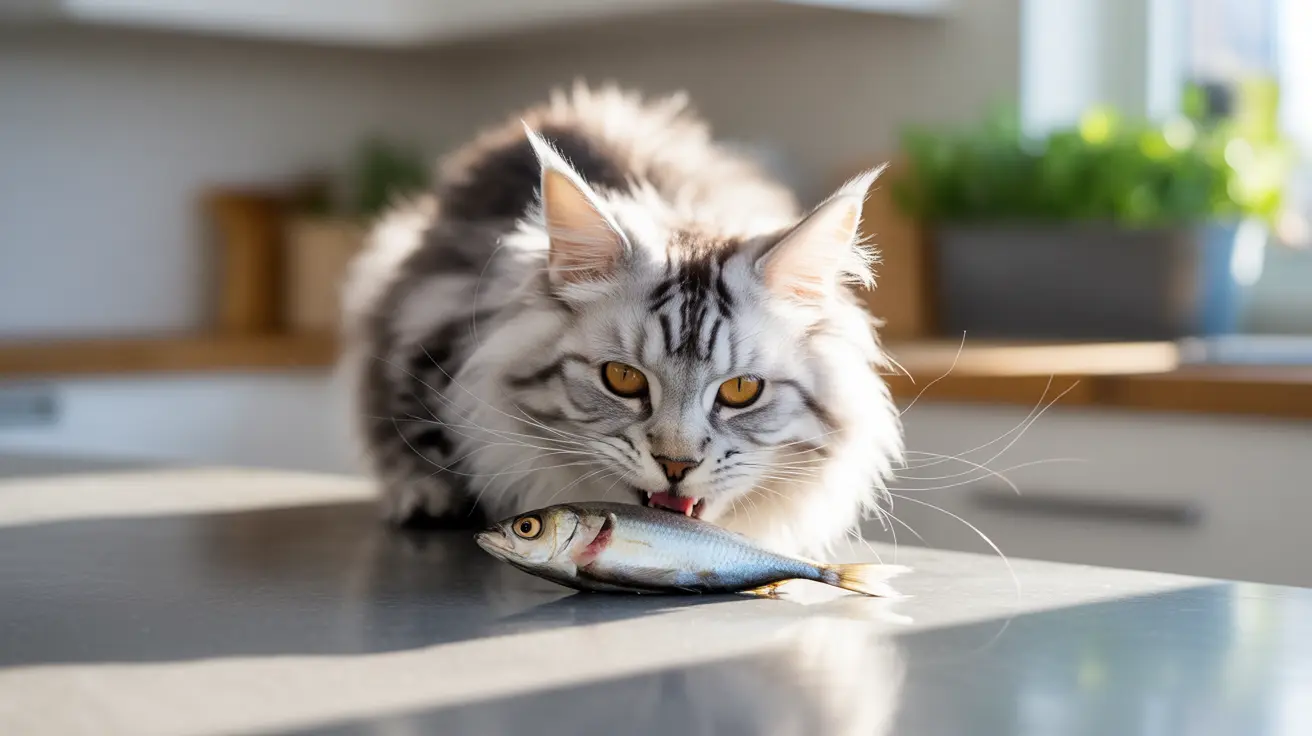The Nutritional Benefits of Sardines for Cats
Sardines pack an impressive nutritional punch that can benefit your cat's health in multiple ways:
Essential Fatty Acids
Sardines are rich in omega-3 fatty acids, particularly EPA and DHA, which support your cat's:
- Heart health
- Joint function
- Skin and coat condition
- Brain development
- Anti-inflammatory responses
Protein and Amino Acids
As obligate carnivores, cats require high-quality protein, and sardines deliver. They contain taurine, an essential amino acid cats can't produce themselves, vital for heart and eye health.
Vitamins and Minerals
These small fish are loaded with:
- Vitamin D for bone health
- Vitamin B12 for nervous system function
- Calcium for strong bones and teeth
- Iron for healthy blood cells
- Selenium for immune system support
How to Safely Feed Sardines to Your Cat
Choosing the Right Type
Select sardines that are:
- Packed in water (not oil or sauce)
- Unseasoned and unsalted
- Fresh or canned without preservatives
- Properly sized for your cat
Proper Serving Size and Frequency
Moderation is key when feeding sardines to cats:
- Limit to 1-2 times per week
- Serve one small sardine or half a larger one
- Remove bones if feeding fresh sardines
- Always provide alongside regular cat food
Potential Risks and Considerations
Mercury Content
While sardines are generally low in mercury compared to other fish, it's still important to limit their consumption to avoid potential mercury buildup in your cat's system.
Digestive Issues
Some cats may experience digestive upset when first introduced to sardines. Start with small amounts and monitor your cat's reaction.
Weight Management
Despite their health benefits, sardines are calorie-dense. Account for these treats in your cat's daily caloric intake to prevent weight gain.
Frequently Asked Questions
Can cats eat sardines regularly, and how often is it safe to feed them?
Cats can safely eat sardines as an occasional treat, ideally 1-2 times per week. Feeding them more frequently could lead to nutritional imbalances or excess calories.
Are canned sardines in oil or brine safe for cats, or should I choose plain sardines?
Choose sardines packed in water rather than oil or brine. Oil can lead to excess calories and digestive issues, while brine contains too much sodium for cats.
What are the health benefits of giving my cat sardines as a treat?
Sardines provide omega-3 fatty acids, high-quality protein, essential vitamins and minerals, and taurine, supporting heart health, coat condition, and overall wellness.
Can sardines cause allergies or digestive issues in some cats?
Yes, some cats may be allergic to fish or experience digestive upset. Introduce sardines gradually and watch for signs of allergic reactions or stomach problems.
How should I prepare sardines to make sure they are safe for my cat to eat?
Choose plain, water-packed sardines, serve at room temperature, and break into appropriate-sized pieces. Remove excess liquid and any large bones if present.
Conclusion
Sardines can be a healthy and enjoyable treat for cats when served properly and in moderation. Focus on selecting high-quality, plain sardines and maintain appropriate portion sizes. Always consult with your veterinarian before making significant changes to your cat's diet, especially if your pet has existing health conditions.






